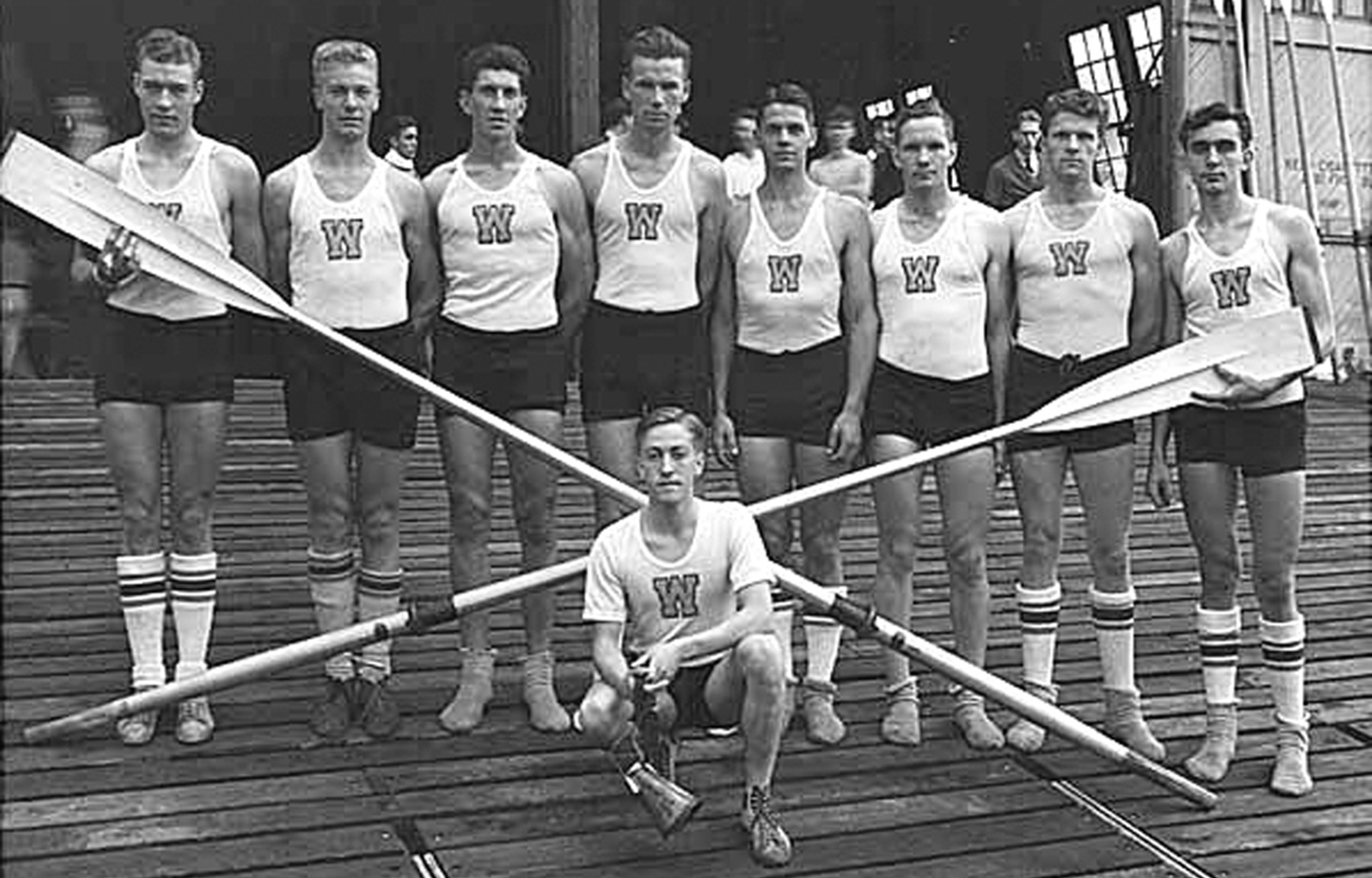Becky and I watched the George Clooney-produced movie, “The Boys in the Boat,” this past weekend. We thought it was a good film, and apparently the book by the same title is even better.
“The Boys in the Boat” tells the story of the 1936 University of Washington eight-oared rowing crew that represented the United States at the Berlin Olympics and ended up winning the gold medal, defeating, among others, Hitler’s German crew. It is a feel-good story that is true. No plot spoilers because everything that happens is predictable. The good guys win.
The boys in the boat are good guys not just because they are American. They are good guys by virtue of, well, virtue. The eight rowers and their coxswain are all from Washington state, the sons of farmers, and fishers, and lumberjacks. Their hard work and loyalty to the team, their perseverance and indomitable spirit was not instilled by coaches or university professors. It is who they are and how they were raised. Mothers and fathers and small towns are to be thanked for who they are. On their way tp Olympic gold, the boys in the boat defeat the teams of rich boys from the Ivy League and German and Italian rowers drafted into the service of oppressive regimes. Virtue defeats money and power.
“Virtue signaling” is a phrase that has been around for nearly two decades. James Bartholomew, the British journalist who popularized the phrase, describes virtue signaling as “expressing good intentions without taking any action.” Or the action may be a lawn sign in the yard of an expensive home announcing the list of “unacceptables” accepted in that home.
The virtues of the boys in the boat were more action than intention. Yes, their action brought an Olympic gold medal, but while virtue may not always be its own reward, it does not always end in gold.
Virtue is not a common biblical word, but Peter uses it in his second epistle when he writes, “…make every effort to supplement your faith with virtue, and virtue with knowledge, and knowledge with self-control, and self-control with steadfastness, and steadfastness with godliness, and godliness with brotherly affection, and brotherly affection with love.” (2 Peter 1:5-7)
Commenting on the word translated here as “virtue,” John Calvin says, “I take virtue to mean a life honest and rightly formed.”
The lives of the boys in the boat were honest and rightly formed.
“The Boys in the Boat” is not a Christian film, and while uplifting, it is not biblical. Nor are the virtues of hard work, loyalty, perseverance, and indominable spirit particularly or uniquely Christian. But neither, however, are they simply cultural constructs, as if in some other telling sloth, betrayal, abandonment, and defeat might be considered virtuous.
Virtue is virtuous because it is rooted in something other than itself. Scholars call those catalogues of positive attributes like those in 2 Peter 1 “virtue lists” – faith, virtue, knowledge self-control, steadfastness, godliness, brotherly affection, and love are virtues, virtues to be cultivated in the Christian’s life. We call a similar virtue list in Galatians the Fruit of the Spirit (“love, joy, peace, patience, kindness, goodness, faithfulness, gentleness, self-control” – Galatians 5:22-23).
Virtue rightly understood is not a social construct, but a gift from God, the spiritual fruit of a life lived to the glory and for the enjoyment of God.

